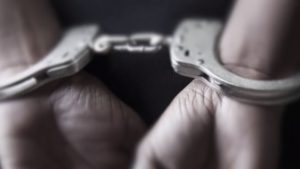KADUNA, Federal Republic of Nigeria. Group Managing Director of the Nigerian National Petroleum Corporation (NNPC), Dr. Ibe Kachikwu, has said the corporation is working towards the deployment of drones across the nation’s territorial waters to monitor the inward and outward movement of oil-bearing vessels.
A drone is an unmanned aircraft either controlled from the ground or autonomously following a pre-programmed mission. Drones are usually deployed for two purposes; reconnaissance and for aerial attacks.
In a presentation at the special conference on security in the Gulf of Guinea, organised by the Gusau Institute, Kachikwu stated NNPC’s commitment to “a range of far-reaching options designed to end the ugly episodes of crude and petroleum products theft within the next eight months”.
“We are launching an armada of approaches, which will include incorporation of drones to check movements of vessels within our territorial waters,” he said.
A 2013 report by think tank Chatham House said that 100,000 barrels of oil per day, the equivalent of 5 per cent of Nigeria’s daily production were being stolen.
Kachikwu said, “We are looking at the current logistical nightmares of changing staffing at the loading bay of crude oil export terminals virtually every 90 days; we are trying to equip the navy sufficiently though they are very well-equipped in terms of skill set but not in terms of arsenal for patrols within the maritime area.”
On pipeline protection, he explained that though the corporation was working assiduously with the law enforcement agencies to increase the presence of military personnel in the area, the ultimate security for the critical oil and gas assets lies squarely with the host communities.
“The best security for these pipelines lies with the communities. We are trying to create enough incentives for them to see these pipelines as their own,” he said.
Lamenting the impact of oil theft on the smooth operations of the nation’s refineries, he warned that if left unchecked, the menace could invariably make it impossible for the NNPC to operate the refineries.
“Most of our product pipelines are ruptured and attacked frequently. For instance, between June 2014 and June 2015, we recorded about 3, 500 to 4,000 attempts at the various products pipelines across the country,” he said.
“In addition to that, the pipelines that are supposed to convey crude to the refineries are perpetually hacked.”
Kachikwu noted that the resort to the use of marine vessels to convey crude to the refineries is coming at heavy cost, saying the consequence is that no matter what we do with the refineries today, the refineries cannot be operated.
He explained that beyond the loss of crude and products, oil theft has also claimed a huge number of human lives.
“In the last three years, a total of 350 persons, including NNPC staff, police officers, and community members have been killed as a result of activities of oil thieves,” he said.
“Today, I ask all of you to join us in this campaign; it is not just a campaign for NNPC but it is a campaign for every Nigerian…. So it is war time, it is business time, it is focus time and there is a lot to do.
“Everybody is being called to the table and everybody is being called on the state of alert, but in eight months we must be able to deliver an environment that is free from the vices of oil theft.”
He added that in executing the campaign, adequate support will be sought from the international community, especially from countries that have become host nations to the stolen cargoes.
Earlier in his keynote address, Patrice Emery Trovoada, Prime Minister of Sao Tome and Principe, called on the countries in the Gulf of Guinea to forge a broad-based collaboration to stem the ugly tide of insecurity on all the water ways.
Credit: Tribune (Nigeria)




